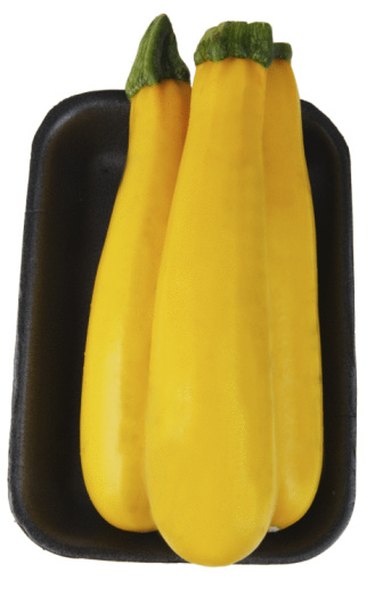
Squash is a popular plant found in many home gardens. Squash plants are easy to grow and require little maintenance beyond water, fertilizer and staking. Squash comes in a variety of types and can be used in a number of dishes. Squash is a warm weather crop that should only be planted after all danger of frost has passed. Squash plants are heavy feeders, so finding the best fertilizer mixture is important to maximize crop yield.
Soil Amendments
Video of the Day
Squash plants benefit from the use of soil amendments that add both nutrition and a lighter consistency to allow root systems to grow. According to the Colorado State University, organic soil amendments like compost, processed manure, peat, wood chips, straw or wood ash can be used to improve soil texture and add nutrients. Inorganic soil amendments like vermiculite, perlite, pea gravel and sand improve the texture of soil and the ability of roots to use available nutrients. All of these amendments can be worked into the lower soil at planting time to help immature squash plants develop strong root systems. Peat moss, perlite and sphagnum moss can also be used to lighten heavy clay soils. A variety of soil amendments can be found at garden centers that carry organic products.
Video of the Day
Chemical Fertilizer
The University of Minnesota recommends a half-cup application of 46-0-0 fertilizer or 1 cup of 27-3-30 fertilizer for each 25 feet of row at mid-season for squash plants. If you use organic fertilizers such as compost or manure, you can reduce this amount proportionally. "Weed and feed" products should not be used on vegetables because it will kill them. Even using these lawn products near your garden area can allow is to drift over and kill vegetation.
Slow Release Fertilizer
Slow release fertilizers are added at the time of planting to release nutrients as newly-planted squash plants grow. These should be used according to package directions and worked into the soil thoroughly. According to Ohio State University, when growing squash in containers, you should use a complete, balanced fertilizer, such as 10-10-10, 13-13-13 or 14-14-14, adding ½ tablespoon per 1 gallon of soil.
Lime
Squash prefer a pH between 6.5 and 6.8, according to the University of Rhode Island. Soil tests at planting may indicate that the pH level needs to be raised. You can accomplish this easily with applications of lime found at your local garden store or nursery to raise the pH to the correct level.